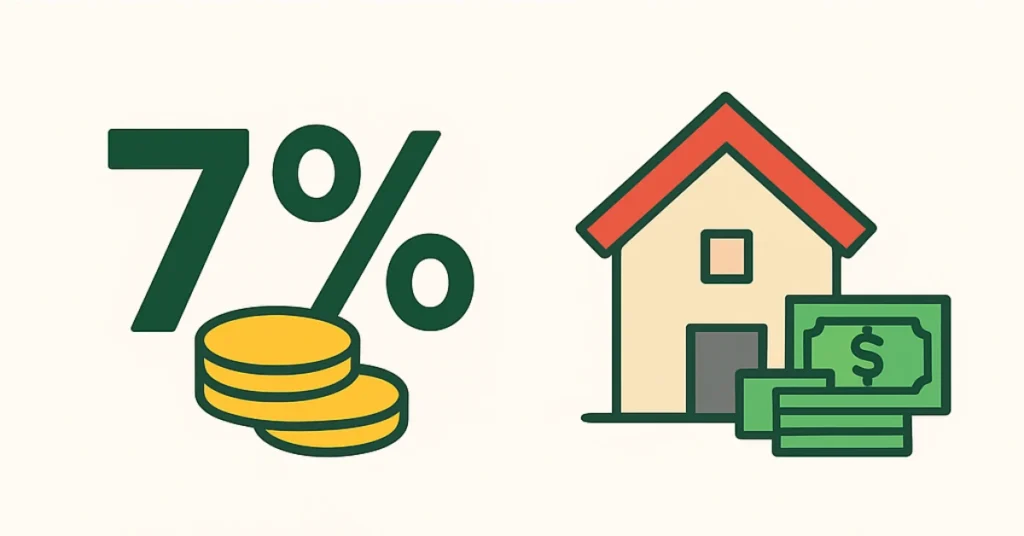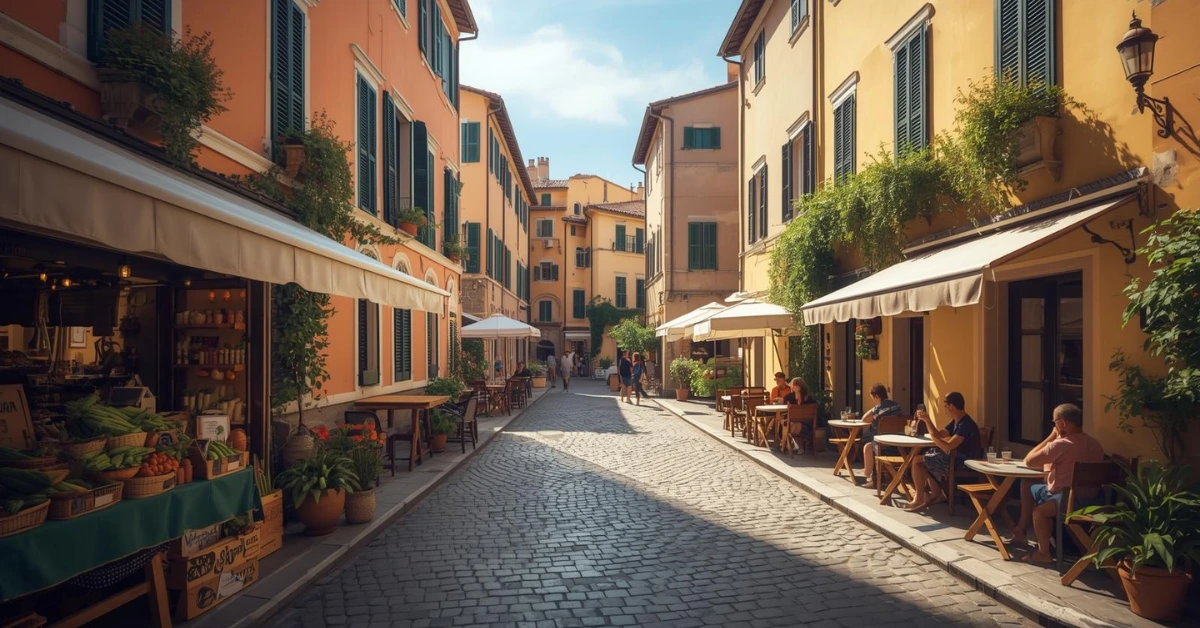Italy’s beautiful Italian villages and small towns offer more than just pretty views and great food. If you’re thinking about moving to Italy, choosing a small municipality can save you a lot of money through special tax breaks and cash incentives that the government offers.
Table of Contents
ToggleHow Italy’s Tax Breaks Work for Small Towns
The Italian government wants to bring more people to rural areas that are losing population. To make this happen, they created special tax rules that can save you thousands of euros every year. If you move to a town with fewer than 20,000 people in certain southern regions, you only pay 7% tax on money you earn from outside Italy. This deal lasts for ten years.
This is a huge saving compared to normal Italian taxes, which can go up to 43%. Whether you get pension money, rental income, or earnings from another country, you’ll only pay that low 7% rate. The only catch is that you can’t have lived in Italy as a tax resident for at least five years before moving.
Regions where you can get the 7% tax rate:
- Sicily
- Calabria
- Sardinia
- Campania
- Basilicata
- Abruzzo
- Molise
- Apulia
Cash Payments for Moving to Small Towns
Some small towns will actually pay you money to move there. These aren’t loans, they’re grants you don’t have to pay back. Different towns offer different amounts, but they all want the same thing: for you to live there and help their local economy grow.
Here’s what some towns are offering:
| Town/Region | Cash Offer | Requirements |
|---|---|---|
| Candela (Puglia) | Up to €2,000 | Must rent a house and earn at least €7,500/year |
| Molise Region | €700/month for 3 years (€25,200 total) | Ages 18–40, must open a business in a town under 2,000 people |
| Sardinia | €15,000 | Must buy or renovate a house in a town under 3,000 people |
| Calabria | Up to €28,000 | Under 40, stay 3+ years, start a business or bring professional skills |
These programs require you to actually contribute to the community. Most want you to start a business or bring a skill that helps the town. This might sound hard, but it actually helps you build income while you’re getting financial support.
Much Cheaper Housing and Daily Costs
One of the biggest benefits of small municipalities in Italy is how much less expensive everything is. Houses in small towns cost a fraction of what you’d pay in big cities like Rome or Milan.
Property price comparison:
- Big city centers (Rome, Milan): €6,000 per square meter
- Small towns (Marche, Abruzzo, Umbria): €1,000–€1,180 per square meter
- Small Tuscan towns: €1,800–€2,300 per square meter
This means if you have €100,000 to spend on a house, you could buy about 17 square meters (183 sq ft) in Milan, but 85–100 square meters (915–1,076 sq ft) in a small town in Abruzzo. That’s the difference between a tiny studio and a nice-sized house.
Your everyday expenses are also much lower. Food from local markets costs less than city supermarkets. Municipal taxes are reduced. Utility bills are smaller. Plus, many towns give newcomers extra tax credits on things like waste disposal and water bills.
Starting a Business With Government Support
Most of these programs want you to open a business, which might seem scary at first. But small towns make it easier and cheaper to start a business than big cities do. You’ll pay less for rent or buying a shop space, you won’t have much competition, and the town government often helps you get started.
Popular business ideas that work well:
- Tourist accommodations (bed and breakfasts, vacation rentals)
- Restaurants or cafes featuring local food
- Tour guide services
- Shops selling local products (cheese, wine, crafts)
- Remote work services (if you already have online clients)
Towns like Santa Fiora have installed super-fast internet specifically for remote workers. This means you can keep your job online for a company in another country, earn that salary, pay only 7% tax, and live somewhere beautiful with low costs.

Lifestyle and Quality of Life Benefits
Small Italian municipalities don’t just save you money, they also offer a better way of life. You’ll enjoy:
- A slower pace of living with less stress and more free time.
- Stronger community ties, where neighbors know and help each other.
- Healthier living, with fresh produce from local farms and markets.
- Rich cultural life, from festivals and traditions to historical landmarks.
- Access to nature, whether mountains, beaches, or rolling countryside.
Many small towns are just an hour or two from larger cities, so you get peace and affordability without losing access to major airports or hospitals.
Immigration and Visa Considerations
These incentives pair especially well with Italian visa programs.
- Elective Residence Visa: Ideal for retirees with passive income or pensions. Combine this with the 7% tax rate, and you can live comfortably at a low cost.
- Self-Employment Visa: Fits those who want to open a small business in town. Grants and lower startup costs make it much easier to qualify.
- EU Citizens: Moving is even simpler, no special visas are required, only residency registration.
Long-Term Investment Potential
Beyond lifestyle and immediate savings, buying property in a small Italian town can be a smart long-term investment.
- Properties are undervalued compared to cities, meaning strong appreciation potential as regions revive.
- Many towns and the Italian state offer renovation bonuses and tax credits for restoring old houses, further reducing your costs.
- A home in Italy can also serve as a base for future generations — a family asset that grows in value.
Your Money Goes Further Over Time
When you add up all these benefits together, the financial advantages are impressive. Let’s look at a simple example:
| Expense Category | Big City (Annual) | Small Town (Annual) | Your Savings |
|---|---|---|---|
| Taxes on €30,000 foreign income | €10,000+ | €2,100 | €7,900 |
| Rent/Mortgage | €15,000 | €6,000 | €9,000 |
| Daily expenses | €12,000 | €8,000 | €4,000 |
| Total Annual Savings | €20,900 |
Over ten years (the length of the tax benefit), you could save over €200,000 just from these differences. That doesn’t even count the cash grants some towns give you when you arrive.
For retired people, these benefits are even better. Imagine you get €2,500 monthly from a foreign pension (€30,000 yearly). Under normal Italian taxes, you might pay €10,000 in taxes. With the 7% rate, you only pay €2,100, saving €7,900 every single year.
What You Need to Do
Getting these benefits isn’t automatic, but the process is straightforward. Here’s what most programs require:
For tax benefits:
- Haven’t lived in Italy for the past 5 years
- Move to a town with under 20,000 people in an eligible region
- Register your residency officially
For cash grants:
- Usually ages 18–40 (though pension tax breaks have no age limit)
- Commit to living there for 2–3 years minimum
- Start a business or bring a needed professional skill
- Prove you’re moving from a larger town
The benefits of small municipalities in Italy make it possible to live well on less money while enjoying the Italian lifestyle. Between government cash, lower taxes, cheaper housing, and business opportunities, you can build a secure financial future in one of the world’s most beautiful countries. These small Italian villages need new residents, and they’re willing to pay to get them, which means this could be your chance to make a smart financial move while living your Italian dream.
Would you like to read more about similar subjects? Take a look at our related articles here: Italian Citizenship Through Your Child, Italian Citizenship by Descent and Home Renovation Incentives in Italy.
Survey: Benefits of Small Municipalities in Italy
1. What is the special tax rate offered to people moving to eligible small towns in southern Italy?
5%7%
10%
2. True or False: The 7% tax rate lasts for five years.
TrueFalse
3. Which of these regions is not mentioned as eligible for the 7% tax rate?
CalabriaVeneto
Sardinia
4. True or False: Some Italian towns pay newcomers cash grants to move there.
TrueFalse
5. How much can someone receive for moving to a small town in the Molise region?
€700/month for 3 years€15,000
Up to €28,000
6. True or False: To qualify for the 7% tax rate, you must have lived in Italy for at least five years before moving.
TrueFalse
7. What’s one of the biggest advantages of small-town housing compared to big cities?
Homes are much cheaperHomes are newer
Homes are larger but cost the same
8. True or False: Small municipalities typically have higher daily living expenses than large cities.
TrueFalse
9. Which type of business is not mentioned as suitable for small towns?
Bed and breakfastTour guide services
Large shopping malls
10. True or False: The benefits of small municipalities only apply to retirees.
TrueFalse



